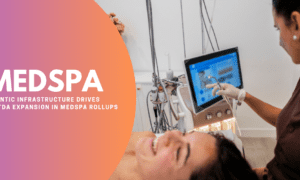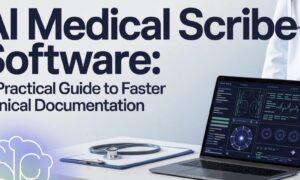When you’re operating a growing business, specific tasks can quickly drain your time and resources. Managing HR matters is one of them. From compliance and payroll to benefits and employee relations, the administrative burdens can add up quickly. This is where a professional employer organization (PEO) might help.
However, before you make this move, it’s helpful to understand what a PEO is, how it functions, and whether it aligns with your business goals. This guide explores the fundamentals of HR outsourcing, what you can expect in a PEO partnership, and the most pertinent questions you need to ask before committing.
What Is a PEO?
What is a PEO? It’s a company that offers comprehensive HR solutions to other businesses, often small to midsize organizations seeking to enjoy the same advantages as larger players. These solutions frequently include payroll and tax administration, HR compliance and risk management, employee onboarding and support, workers’ compensation coverage, and employee benefits management.
Suppose your company enters into a co-employment arrangement with a PEO. In that case, you continue to manage the daily supervision and activities of your employees, while the PEO handles back-office administration and provides HR compliance guidance. A co-employment model enables the PEO to pool employees from multiple companies, providing better access to health insurance plans and various other benefits.
Why Businesses Turn to HR Outsourcing
As your business scales, the complexity of workforce management follows suit. HR outsourcing with a PEO streamlines back-office tasks without having to hire an entire internal department. Outsourcing HR frees up time, helps improve compliance, offers competitive benefits, controls costs, and reduces liability risks. You can focus on your core business functions without worrying about your ability to attract and retain talent or keep up with constantly evolving labor laws.
Questions to Ask Before You Partner With a PEO
Partnering with a PEO might be a boon for your business, but you still need to be as mindful and deliberate with this decision as with any other. Asking the following questions can help.
1. What HR Functions Are We Struggling With the Most?
Before you engage a PEO, consider your company’s current HR challenges. Are you struggling with labor law compliance? Does payroll processing overwhelm you? Is it difficult to manage benefits enrollment? Knowing your current pain points helps you evaluate whether a PEO can provide appropriate solutions. In some cases, a more targeted HR outsourcing program, such as an HR consultant or payroll provider, might be a better match.
2. Are We Ready for a Co-Employment Relationship?
Understanding what a PEO is involves recognizing the co-employment model. You’ll still manage your operations and employees, but the PEO is the “employer of record” for tax, benefits, and HR purposes. That means your PEO will share selected employer responsibilities, distribute employee paychecks, and administer insurance and benefits under its umbrella. Some business owners hesitate to commit to this level of integration.
3. What Will the Cost Structure Look Like?
PEO pricing varies based on different models. You might pay a percentage of your total payroll or a flat rate per employee each month. Request a detailed cost breakdown that factors in setup or onboarding costs, monthly service fees, and benefits plan contributions. Ask about the contract terms: Can you cancel with notice, or are you locked in for the next year? Watch out for extra fees for additional services.
4. Will a PEO Help Us Stay Compliant With Regulations?
Keeping pace with tax codes, labor laws, and industry-specific regulations is a daunting challenge. Reputable PEOs provide robust compliance support ranging from employment law updates to tax filings and payroll compliance. Expect risk and safety guidance as part of a comprehensive package, and take advantage of any help available with employee terminations or disputes.
5. What Kind of Employee Benefits Can We Access?
A tremendous benefit of partnering with a PEO for your small or midsize business is accessing enterprise-level benefits usually only larger companies can afford. This may include employee wellness programs, retirement plans such as 401(k)s, disability and life insurance, as well as health, vision, and dental insurance. Compare these potential offerings to what you’re currently able to offer. Could these benefits save you money long-term? Can they improve employee satisfaction and lead to better talent retention?
6. What Level of Customer Support Will We Receive?
Not every PEO is the same, especially in terms of service. Ask a potential PEO if you’d have a dedicated account manager. See how responsive support is, and see if help is available during emergencies or after business hours. Your PEO relationship quality matters, so pick a provider known to value partnership and communication more than just the fundamental transactions.
7. Is the PEO Accredited and Financially Stable?
Look for designations or accreditations that indicate high financial security standards. The Employer Services Assurance Corporation (ESAC) is one to look for. Another is the IRS Certified Professional Employer Organization program, or CPEO. These accreditations are awarded to PEOs recognized for their commitment to regulatory compliance and ethical business practices. You can also do your research into how long a particular PEO has been operating, its available testimonials and reviews, and its client retention rate.
Look Within Before You Decide
Deciding whether your business should partner with a PEO requires looking inward at your current growth trajectory, HR challenges, and long-term goals. Picking the right PEO can create a powerful partnership that provides you with expertise, time, and peace of mind, but it requires careful consideration. Ask the right questions, and evaluate your options. Doing so puts you in a strong position to pick the right HR outsourcing path that best supports your team and mission.

































